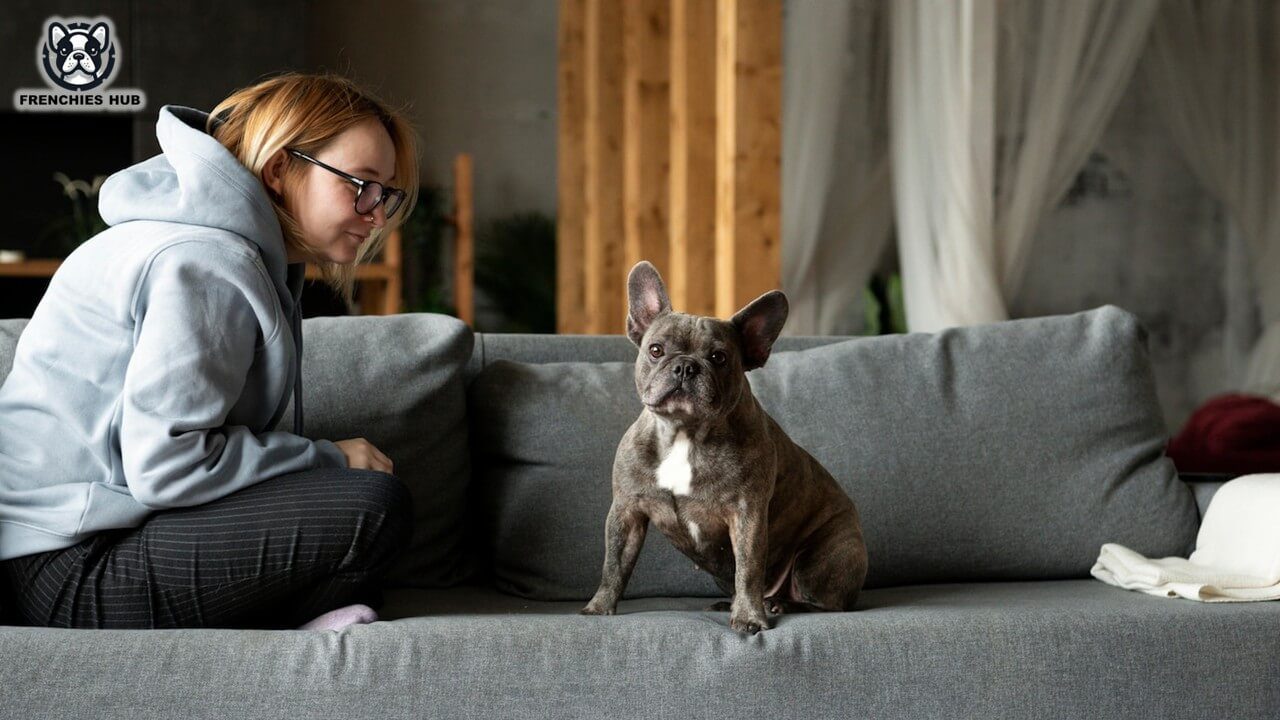As a long-time admirer and caretaker of French Bulldogs, their well-being is something I hold close to my heart. These playful and affectionate animals are not just pets; they are loyal companions. However, it’s crucial to recognize that Frenchies are often prone to various allergies. In this article, we’ll explore these common allergies and understand how they can lead to discomfort or even severe health issues if left untreated. Based on my experience, I’ll provide some valuable tips on how to treat these allergies effectively, ensuring our furry friends live a comfortable and joyful life.
Understanding Allergies in French Bulldogs
In my years of experience with French Bulldogs, a question that often arises is whether this beloved breed is prone to allergies. Indeed, like any other dog, French Bulldogs are susceptible to various common allergens. These can range from pollen and mold to dust mites and certain food ingredients. Allergic reactions in these dogs are not uncommon and can manifest in a variety of symptoms. Owners might notice signs like itching, redness, and swelling of the skin, along with respiratory issues such as sneezing and coughing. Understanding these allergens and their impact is crucial for every French Bulldog owner.
Types of Allergies in French Bulldogs
French Bulldogs commonly encounter two primary types of allergies, which include:
Food Allergies: Often triggered by specific ingredients found in dog food or treats, these allergies can manifest as symptoms like vomiting, diarrhea, and itchy skin.
Environmental Allergies: Resulting from exposure to environmental elements like pollen, dust, mold, or chemicals, these allergies can lead to symptoms including sneezing, itchy skin, and watery eyes.
Food Allergies
In my journey with French Bulldogs, I’ve observed that Food Allergies are not uncommon in these delightful breeds of dogs. These allergies are typically caused by a specific allergen in their diet, which interacts with the antibodies in their intestine. This leads to a histaminic response, similar to what we see in humans, resulting in various symptoms. The allergens are often related to proteins found in certain foods. It’s not unusual for Frenchies to have allergic reactions to:
- Dairy products
- Chicken
- Beef
- Fish
- Wheat
- Lamb
- Corn
- Soy
- Eggs
Addressing these allergies might involve incorporating more lean meat into their diet or identifying and eliminating the offending allergens to better manage their immune system responses.
Environmental Allergies
My experience with French Bulldogs has shown that they are particularly prone to Environmental Allergies. These allergies are triggered by various environmental factors that cause their bodies to release histamine, leading to an allergic reaction. Common culprits include:
- dust mites
- animal dander
- Pollen
- Mold spores
Such allergens can be pervasive in a dog’s environment and may require specific strategies to manage their impact on the health of these sensitive dogs.
Identifying Allergy Symptoms in French Bulldogs
Food Allergy Symptoms
Identifying Food Allergy Symptoms in French Bulldogs is crucial, as these canines can display signs similar to humans. The symptoms of an allergic reaction in your dog can be multi-faceted.
Gastrointestinal response: watch for diarrhea, vomiting, and excessive flatulence after a meal. These symptoms might signal more serious medical conditions like pancreatitis or dehydration.
Skin conditions: are telltale signs. An irritable skin presenting hives, rashes, bumps, sores, or hyperpigmentation can indicate allergies. Pay special attention to Open skin sores, as they’re susceptible to bacterial and fungal infections, which can leave the wound infected.
Environmental Allergy Symptoms
When it comes to Environmental Allergy Symptoms in French Bulldogs, my experience has taught me a lot. These allergies, often hereditary and chronic, manifest through atopic dermatitis. The hypersensitive reaction to allergens can cause symptoms akin to hay fever or asthma.
You’ll notice your Frenchie’s skin becoming irritated and scabbed, a sign of their struggle with these environmental allergies. Unfortunately, there’s no permanent cure, but medication can help manage the symptoms. Observe your dog’s behavior: excessive scratching, rubbing, or licking of effected areas are red flags. Inflamed parts of the body like the :
- Groin area stomach
- Toes
- feet
- Ears
- Eyes
- nose
- face
are common targets. Also, check their skinfolds as they might conceal painful allergies.
How to Treat Allergies Affecting French Bulldogs
Food Allergy Treatment
Treating Food Allergy in a Frenchie starts with identifying if they are allergic to a specific food. An elimination diet is effective here; remove potential food allergens from your dog’s diet for a week or so and observe if symptoms subside. Gradually reintroducing items can help pinpoint the culprit. If this doesn’t resolve the issue, a physical examination with blood and urine tests can be crucial. Should these tests show no disease, the vet might recommend prescription food, probiotics, and medication. This approach is a shift for dogs accustomed to regular treats, but it’s vital when you’re unsure of the allergy source.
Environmental Allergy Treatment
Addressing Environmental Allergy Treatment in French Bulldogs requires a tailored approach. Corticosteroids and antihistamines are often prescribed by the dog’s vet to prevent excessive scratching, a common symptom of these allergies. The severity of the allergic reaction determines the strength of the medication needed. Additionally, topical ointments, either prescribed or over-the-counter, are essential in helping heal scabs or open wounds on the dog’s skin, thereby reducing irritation. It can be tricky if your Frenchie likes to lick the applied treatments, so it’s advisable to apply them when they are sleepy or you can distract them for 15-20 minutes to ensure effective healing.
Conclusion
Overall, managing allergies in French Bulldogs is crucial for their well-being. With proper management and treatment, these allergies can be managed, allowing your furry friend to lead a joyful life. It’s important to speak with a veterinarian if you suspect your French Bulldog has ongoing allergies. Their expertise can help alleviate symptoms and improve your dog’s overall quality of life. At the end of the day, remember that allergy issues in loveable Frenchies are not unique to this breed and shouldn’t sway you from owning a Frenchie. Nor should these challenges be a reflection of the care and love you provide for your dog.

